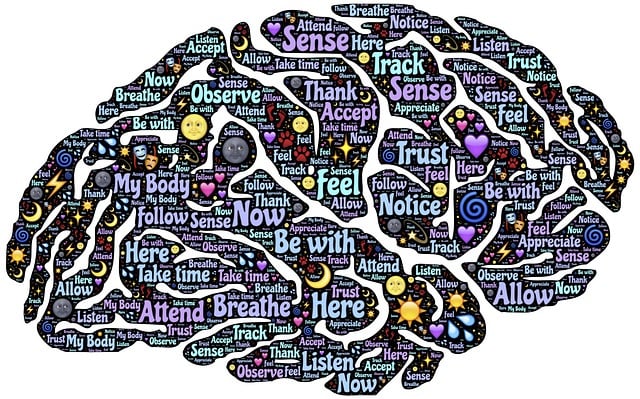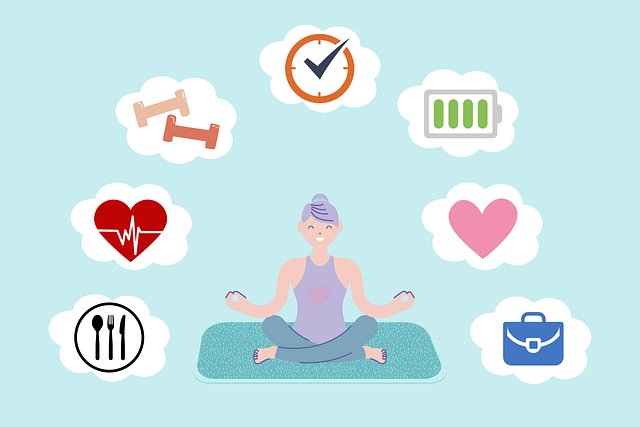Resilience, as facilitated by the RFM framework, is a powerful tool for addressing Boulder workplace issues such as job stress and burnout. By focusing on reliability, flexibility, and mastery, organizations can empower employees to handle challenges through improved communication and self-care routines. Mindfulness practices like compassion cultivation are particularly beneficial for healthcare providers, enhancing mental fortitude and patient care. Incorporating RFM exercises into company wellness programs reduces burnout risk, fosters open discussion, and cultivates a supportive work environment. Real-world success stories in Boulder demonstrate the positive impact of these strategies on employee well-being and productivity across various sectors.
“Unraveling the power of resilience is a game-changer for navigating the challenges of modern workplaces. This article explores the innovative approach of RFM (Resilience, Flexibility, and Mobility), a framework designed to combat the prevalent issues of job stress and workplace pressures. We delve into its impact on employee well-being and performance.
Through practical exercises, discover how RFM enhances resilience, offering effective solutions for Boulder workplace issues and providing therapy for job stress management.”
- Understanding RFM: A Framework for Workplace Resilience
- The Impact of Job Stress and Common Workplace Issues
- Exercises to Build Resilience in the Face of Stressors
- Incorporating RFM into Company Wellness Programs
- Real-World Success Stories: RFM in Action
Understanding RFM: A Framework for Workplace Resilience

Resilience is a vital component of emotional well-being promotion techniques in today’s demanding work environments. The RFM framework offers a structured approach to navigate and mitigate Boulder workplace issues and job stress therapy. It stands for Reliability, Flexibility, and Mastery, three key aspects that contribute to building resilience at the workplace. This model encourages employees to develop effective communication strategies and self-care routine development for better mental health.
By focusing on these dimensions, organizations can foster a culture where individuals are equipped to handle various challenges. Reliability refers to consistent performance and trustworthiness in the face of adversity. Flexibility involves adaptability to change and uncertainty, while Mastery signifies the pursuit of skill development and personal growth. Incorporating exercises that enhance these aspects can revolutionize how employees manage stress, ultimately leading to a healthier and more productive workforce.
The Impact of Job Stress and Common Workplace Issues

Job stress and common workplace issues can significantly impact an individual’s overall well-being and productivity. In today’s fast-paced work environments, many professionals face intense pressure, leading to increased anxiety and potential burnout. From heavy workloads to demanding deadlines, these factors contribute to a range of physical and mental health concerns. The continuous exposure to such stressors without proper management can result in chronic stress, affecting not only job performance but also personal life.
The impact extends beyond the individual, as it influences team dynamics and organizational success. Common workplace issues like poor communication, toxic work culture, or lack of support from colleagues and superiors can further exacerbate the problem. Incorporating resilience-building exercises and implementing effective Job Stress Therapy becomes vital for both employees and employers to combat these challenges. Adopting strategies for Self-Care Routine Development and Emotional Well-being Promotion Techniques are essential steps towards fostering a healthier, more resilient workplace environment where individuals can thrive despite external pressures.
Exercises to Build Resilience in the Face of Stressors

Building resilience is an essential aspect of navigating workplace issues and managing job stress. Exercises designed to enhance resilience equip individuals with the mental fortitude to withstand and thrive in the face of various stressors. One effective approach involves incorporating mindfulness practices, such as compassion cultivation, into daily routines. These practices encourage individuals to cultivate self-awareness, empathy, and a non-judgmental mindset, which can help buffer against negative emotions and stress responses.
Healthcare providers, in particular, benefit from integrating resilience-building techniques into their professional development. Cultural competency training, combined with stress management workshops and compassion cultivation practices, can foster a more resilient and compassionate healthcare workforce. By learning to manage stress and develop emotional agility, professionals can better support their patients while maintaining their own well-being, ultimately enhancing the quality of patient care in challenging situations.
Incorporating RFM into Company Wellness Programs

Incorporating RFM (Resilience, Flexibility, and Mindfulness) exercises into company wellness programs is a strategic move to address prevalent workplace issues such as job stress and burnout. As organizations recognize the profound impact of mental health on overall productivity and employee satisfaction, RFM practices emerge as powerful tools in their arsenal. These exercises are designed to enhance emotional well-being, promote resilience in the face of challenges, and foster flexibility in navigating stressful situations, thereby reducing the risk of burnout.
By integrating RFM into workplace wellness initiatives, companies can contribute to mental illness stigma reduction efforts and create a more supportive environment. Regular sessions focused on mindfulness techniques, for instance, help employees cultivate awareness and presence, enabling them to manage stress effectively. Such practices not only benefit individuals but also create a ripple effect, fostering a culture of open discussion around emotional well-being, which is crucial in preventing burnout and promoting holistic employee health.
Real-World Success Stories: RFM in Action

In the realm of Boulder workplace issues and job stress therapy, Real-World Success Stories highlight the profound impact of RFM (Resilience, Flexibility, and Mindfulness) exercises. Organizations across various industries have witnessed significant improvements in employee well-being and productivity through implementing these practices. For instance, a tech startup struggling with high burnout rates among developers found that introducing mindfulness sessions during lunch breaks and encouraging flexible work schedules led to a notable decrease in stress levels and increased job satisfaction.
This transformation extends beyond individual experiences; it reverberates throughout the company culture. A recent Mental Wellness Podcast Series Production featured an interview with HR managers from several Fortune 500 companies who shared their journeys towards fostering resilience among their teams. Through regular RFM training, these businesses have not only prevented burnout but also boosted employee confidence and overall mental wellness. This strategy has proven to be a game-changer in navigating the challenging landscape of modern workplace issues.
Resilience is a vital asset for any organization, especially when navigating the challenges of modern work environments. By incorporating RFM (Recovery, Flow, and Meaning) into wellness programs, companies can effectively address job stress and common workplace issues. These exercises not only foster individual resilience but also create a more supportive and adaptable organizational culture. As seen in real-world success stories, implementing RFM strategies can revolutionize how employees manage and overcome stressors, ultimately enhancing overall well-being and productivity in the bustling landscape of today’s workplaces, including those in Boulder and beyond.














